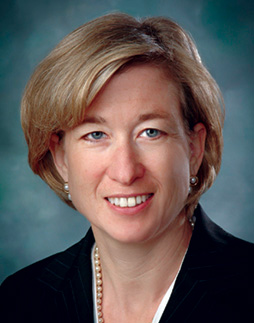 WASHINGTON – Lawmakers need to hear from HME providers if the industry has any hope of getting reimbursement relief, says AAHomecare, which last week issued a call to action to drum up support for recently introduced legislation.
WASHINGTON – Lawmakers need to hear from HME providers if the industry has any hope of getting reimbursement relief, says AAHomecare, which last week issued a call to action to drum up support for recently introduced legislation.
H.R. 6641 left the gate Feb. 8 with six original co-sponsors and currently stands at 10.
“We are in full grassroots mode,” said Tom Ryan, president and CEO. “We have been working the Hill and staff said they understand the issue but haven’t been hearing from providers. That’s concerning and we need to gin up more support for grassroots efforts.”
The bill would implement a blended rate based 90% on bid pricing and 10% on the 2015 fee schedule, representing about a 10% to 15% increase.
While there’s a lot of noise on the Hill related to the impact of supply chain challenges and rising costs, HME providers should be able to rise above the din, stakeholders say.
“Everyone has issues, but how it impacts our industry has real consequences that impact people’s ability to live,” said Cara Bachenheimer, shareholder and head of the government affairs practice at Brown & Fortunato. “The supply chain issues and rising costs are so intense. We have to keep screaming about it. We don’t have a choice.”
Although the “Campaign Central” on AAHomecare’s website, which includes issue briefs and other related resources, is a good place to start grassroots efforts, repeated follow-up is critical, says Ryan.
“It’s more than going to the action centers,” he said. “It needs a phone call or in-person meeting to make a better impression. I understand people are busy, but it takes follow-up through several Zoom calls and follow materials – we need more of that.”
Provider Steve Huntington knows the drill.
“(I’ll usually set aside time on a) Friday – it only takes a couple of hours to get out there and send emails, then follow up and try and get a phone call,” said Huntington, director of financial services for HME Home Medical in Green Bay, Wis. “Once you get in front of people, they are more open to listening.”
Stakeholders have also been working with the Senate Finance Committee to lay a clear path for extending the CARES Act, which includes a 75/25 blended reimbursement rate for non-bid, non-rural areas that’s in place through the public health emergency.
“We need to be prepared for a moment’s notice, because there’s always some opportunity or barrier that develops,” said Jay Witter, senior vice president of government relations for AAHomecare. “We need House and Senate leadership to be good with our provision.”